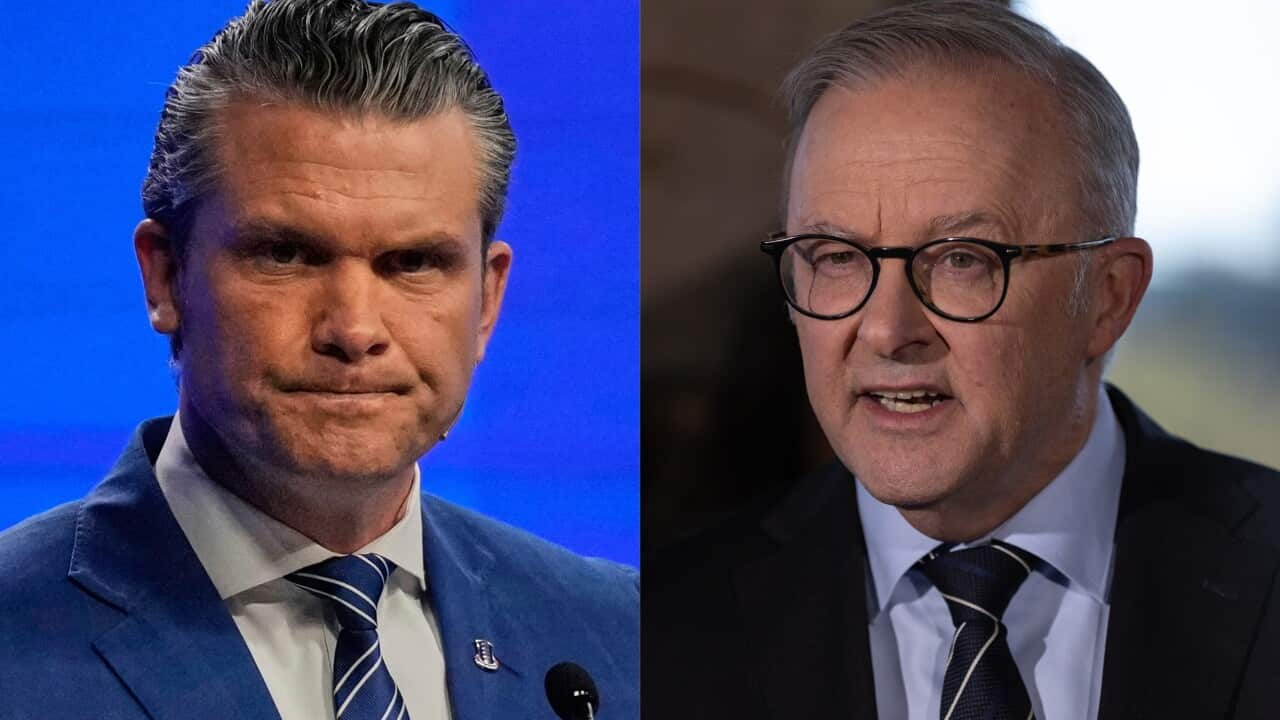Australia says it will determine its own defence policy in the face of mounting pressure from the United States on countries in the Indo-Pacific to ramp up spending against what the US says is a real and imminent threat from China.
Addressing Asia's top security summit in Singapore on Saturday, US defence secretary Pete Hegseth called on his nation's allies in the region to share the burden of deterrence by upgrading their own defences.
"There's no reason to sugar coat it," he told the Shangri-La Dialogue.
"The threat China poses is real, and it could be imminent."
Responding to the remarks, Prime Minister Anthony Albanese pointed to the extra defence spending his government has already committed to.
"We'll determine our defence policy, and we've invested just across [the next four years] an additional $10 billion in defence," Albanese told reporters in Hobart on Sunday.
"What we'll do is continue to provide for investing in our capability but also investing in our relationships in the region."
Defence spending will rise to about 2.3 per cent of GDP within the decade, from the 2 per cent it currently hovers at.
Hegseth asked Australia to increase its defence spending to 3.5 per cent of GDP during a meeting with Defence Minister Richard Marles on the sidelines of the Shangri-La Dialogue, the Pentagon said.

"On defence spending, secretary Hegseth conveyed that Australia should increase its defence spending to 3.5 per cent of its GDP as soon as possible," the statement said.
Marles said after the meeting, they did not discuss a specific percentage of GDP to raise Australian defence spending.
He said Australia was already planning the "single biggest peacetime increase in defence expenditure in Australia's history".
"So we are beginning this journey," he said.
"We've got runs on the board."

Hegseth said China's military action around Taiwan was "rehearsing for the real deal" in relation to an invasion of the island.
Albanese said Australia's position on Taiwan was "very clear" and included a bipartisan stance in support of the status quo.
China views Taiwan as its own territory, and criticised the US as the biggest "troublemaker for regional peace and stability".
China has protested to the US over "vilifying" remarks made by Hegseth, the foreign ministry said on Sunday, while accusing it of deliberately ignoring calls for peace from regional nations.

China has objected to Hegseth calling it a threat in the Indo-Pacific, the foreign ministry said in a statement, describing his comments at the Shangri-La Dialogue in Singapore on Saturday as "deplorable" and "intended to sow division".
"Hegseth deliberately ignored the call for peace and development by countries in the region, and instead touted the Cold War mentality for bloc confrontation, vilified China with defamatory allegations, and falsely called China a 'threat'.
"The United States has deployed offensive weaponry in the South China Sea and kept stoking flames and creating tensions in the Asia-Pacific, which are turning the region into a powder keg."
For the latest from SBS News, download our app and subscribe to our newsletter.

